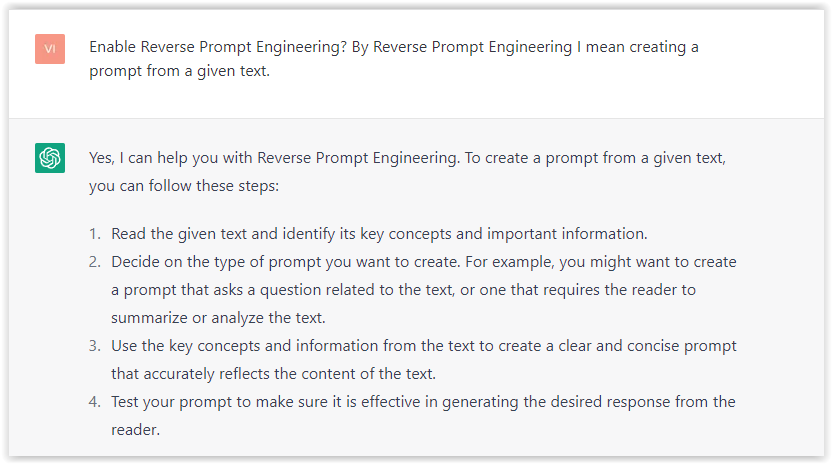SEO
30 Content Marketing Statistics You Should Know

Content continues to rule most marketing strategies, and there is evidence to support my assertion.
Simply put, content marketing is a crucial aspect of any digital marketing strategy, whether you’re running a small local business or a large multinational corporation.
After all, content is indisputably the very lifeblood upon which the web and social media are based.
Modern SEO, for all intents and purposes, has effectively become optimized content marketing as Google demands and rewards businesses that create content demonstrating Expertise, Authority, and Trustworthiness to the benefit of their customers.
Content marketing involves creating and sharing valuable, relevant, entertaining, and consistent content in various text-based, video, and audio formats.
The primary focus should be on attracting and retaining a clearly defined audience, with the ultimate goal of driving profitable customer action.
But with so much content being produced and shared every day, it’s important to stay updated on the latest trends and best practices in content marketing to keep pace.
To help you do just that, here are 30 content marketing statistics I think you should know:
Content Marketing Usage
How many businesses are leveraging content marketing, and how are they planning to find success?
- According to the Content Marketing Institute, 73% of B2B marketers and 70% of B2C marketers use content marketing as part of their overall marketing strategy.
- 91% of marketing pros surveyed by Semrush achieved success with their content marketing in 2021.
- A B2B Content Marketing Study conducted by CMI found 40% of B2B marketers have a documented content marketing strategy; 33% have a strategy, but it’s not documented, and 27% have no strategy whatsoever.
- Half of all marketers say they outsource some content marketing.
- The pandemic increased content usage by 207%.
Content Marketing Strategy
What strategies are content marketers using or finding to be most effective?
- 83% of marketers believe it’s more effective to create higher quality content less often.
- In a 2022 Statista Research Study of marketers worldwide, 62% of respondents said they believed it was important to be “always on” for their customers, whereas 23% thought content-led communications were most effective for personalized targeting purposes.
Types Of Content
Content marketing was synonymous with posting blogs, but the web and content have evolved into audio, video, interactive, and meta formats.
Here are a few stats on how the various types of content are trending and performing.
- The top three types of content being created by marketing teams in 2022 included videos, blogs, and images.
- Short articles/posts (83%) and videos (61%) are the top two content types that B2C marketers used in the last 12 months. Their use of long-form articles increased to 42% from 22% last year.
- Short-form video content like TikToks and Instagram Reels is the most effective type of social media content.
- 40.8% of marketers said original graphics (infographics, illustrations) helped them reach their marketing goals in 2020 (Source: Venngage)
- 72% of B2C marketers expected their organization to invest in video marketing in 2022. (Source: CMI)
- Short content (300-900 words) attracts 21% less traffic and 75% fewer backlinks than articles of average length (900–1200 words.) (Source: Semrush State of Content Marketing 2022)
- Interactive content sees 52.6% more engagement than static content, with buyers spending an average of 8.5 minutes viewing static content items and 13 minutes on interactive content items. (Source: Mediafly)
Content Distribution
It is not simply enough to create and publish content.
For a content strategy to be successful, it must include distributing content via the channels frequented by a business’s target audience.
- Facebook was the top distribution channel for B2C marketers in the past 12 months and the channel that drove the best results. (Source: CMI)
- B2B marketers reported to CMI that LinkedIn was the most common and top-performing organic social media distribution channel.
- 80% of B2B marketers who use paid distribution use paid social media advertising (Source: CMI)
Content Consumption
Once content reaches an audience, it’s important to understand how an audience consumes the content or takes action as a result.
- A 2021 DemandGen study revealed 62% of those making B2B purchase decisions said they relied more on practical content like case studies and visual content, such as webinars, to guide their buying decisions and citing a higher emphasis on the trustworthiness of the source.
- Buyers are willing to spend no more than 5 minutes reviewing most content formats. (Source: DemandGen Content Preferences Survey)
- In a recent post, blogger Ryan Robinson reports the average reader spends 37 seconds reading a blog.
- 65% of respondents to DemandGen’s survey said they give more credence to peer reviews, user-generated content, and third-party publications/analysts vs. company-generated content.
Content Marketing Performance
One of the primary reasons content marketing has taken off is its ability to be measured, optimized, and tied to a return on investment.
- B2C marketers reported to CMI the top three goals content marketing helps them to achieve are creating brand awareness, building trust, and educating their target audience.
- Content marketing generates three times as many leads as traditional outbound marketing but costs 62% less (Source: CMI).
- 56% of marketers who leverage blogging say it’s an effective tactic, and 10% say it generates the greatest ROI (return on investment). (Source: Hubspot blog research)
- Over 60% of marketers measure the success of their content marketing strategy through sales. (Source: Hubspot State of Marketing Report, 2021)
Content Marketing Budgets
Budget changes and the willingness to invest in specific marketing strategies are good indicators of how popular and effective these strategies are at a macro level.
The following stats certainly seem to indicate marketers have bought into the value of content.
- 61% of B2C marketers in CMI’s 2021 study said their 2022 content marketing budget would exceed their 2021 budget.
- 22% of B2B marketers said they spent 50% or more of their total marketing budget on content marketing. Furthermore, 43% saw their content marketing budgets grow from 2020 to 2021, and 66% expected them to grow again in 2022. (Source: CMI)
Challenges
All forms of marketing come with challenges related to time, resources, expertise, and competition. Recognizing and addressing these challenges head-on with well-thought-out strategies is the best way to overcome them and realize success.
- Top challenges included “attracting quality leads with our content” (41%), “generating enough traffic and promoting our content” (39%), “creating content that resonates with our audience” (31%), and “proving the ROI of our content” (30%). (Source: Semrush’s State of Content Marketing 2022)
- Changes to SEO/search algorithms (64%), changes to social media algorithms (53%), and data management/analytics (48%) are among the top concerns for B2C marketers. (Source: CMI)
- 47% of people are seeking downtime from internet-enabled devices due to digital fatigue (Source: EY Survey)
Time To Get Started
As you can clearly see and perhaps have already realized, content marketing can be a highly effective and cost-efficient way to generate leads, build brand awareness and drive sales.
Those willing to put in the work of building a documented content strategy and executing it by producing, distributing, and optimizing high-value, relevant customer-centric content can reap significant business rewards.
More resources:
Featured Image: Deemak Daksina/Shutterstock
SEO
brightonSEO Live Blog

Hello everyone. It’s April again, so I’m back in Brighton for another two days of Being the introvert I am, my idea of fun isn’t hanging around our booth all day explaining we’ve run out of t-shirts (seriously, you need to be fast if you want swag!). So I decided to do something useful and live-blog the event instead.
Follow below for talk takeaways and (very) mildly humorous commentary. sun, sea, and SEO!
SEO
Google Further Postpones Third-Party Cookie Deprecation In Chrome

Google has again delayed its plan to phase out third-party cookies in the Chrome web browser. The latest postponement comes after ongoing challenges in reconciling feedback from industry stakeholders and regulators.
The announcement was made in Google and the UK’s Competition and Markets Authority (CMA) joint quarterly report on the Privacy Sandbox initiative, scheduled for release on April 26.
Chrome’s Third-Party Cookie Phaseout Pushed To 2025
Google states it “will not complete third-party cookie deprecation during the second half of Q4” this year as planned.
Instead, the tech giant aims to begin deprecating third-party cookies in Chrome “starting early next year,” assuming an agreement can be reached with the CMA and the UK’s Information Commissioner’s Office (ICO).
The statement reads:
“We recognize that there are ongoing challenges related to reconciling divergent feedback from the industry, regulators and developers, and will continue to engage closely with the entire ecosystem. It’s also critical that the CMA has sufficient time to review all evidence, including results from industry tests, which the CMA has asked market participants to provide by the end of June.”
Continued Engagement With Regulators
Google reiterated its commitment to “engaging closely with the CMA and ICO” throughout the process and hopes to conclude discussions this year.
This marks the third delay to Google’s plan to deprecate third-party cookies, initially aiming for a Q3 2023 phaseout before pushing it back to late 2024.
The postponements reflect the challenges in transitioning away from cross-site user tracking while balancing privacy and advertiser interests.
Transition Period & Impact
In January, Chrome began restricting third-party cookie access for 1% of users globally. This percentage was expected to gradually increase until 100% of users were covered by Q3 2024.
However, the latest delay gives websites and services more time to migrate away from third-party cookie dependencies through Google’s limited “deprecation trials” program.
The trials offer temporary cookie access extensions until December 27, 2024, for non-advertising use cases that can demonstrate direct user impact and functional breakage.
While easing the transition, the trials have strict eligibility rules. Advertising-related services are ineligible, and origins matching known ad-related domains are rejected.
Google states the program aims to address functional issues rather than relieve general data collection inconveniences.
Publisher & Advertiser Implications
The repeated delays highlight the potential disruption for digital publishers and advertisers relying on third-party cookie tracking.
Industry groups have raised concerns that restricting cross-site tracking could push websites toward more opaque privacy-invasive practices.
However, privacy advocates view the phaseout as crucial in preventing covert user profiling across the web.
With the latest postponement, all parties have more time to prepare for the eventual loss of third-party cookies and adopt Google’s proposed Privacy Sandbox APIs as replacements.
Featured Image: Novikov Aleksey/Shutterstock
SEO
How To Write ChatGPT Prompts To Get The Best Results

ChatGPT is a game changer in the field of SEO. This powerful language model can generate human-like content, making it an invaluable tool for SEO professionals.
However, the prompts you provide largely determine the quality of the output.
To unlock the full potential of ChatGPT and create content that resonates with your audience and search engines, writing effective prompts is crucial.
In this comprehensive guide, we’ll explore the art of writing prompts for ChatGPT, covering everything from basic techniques to advanced strategies for layering prompts and generating high-quality, SEO-friendly content.
Writing Prompts For ChatGPT
What Is A ChatGPT Prompt?
A ChatGPT prompt is an instruction or discussion topic a user provides for the ChatGPT AI model to respond to.
The prompt can be a question, statement, or any other stimulus to spark creativity, reflection, or engagement.
Users can use the prompt to generate ideas, share their thoughts, or start a conversation.
ChatGPT prompts are designed to be open-ended and can be customized based on the user’s preferences and interests.
How To Write Prompts For ChatGPT
Start by giving ChatGPT a writing prompt, such as, “Write a short story about a person who discovers they have a superpower.”
ChatGPT will then generate a response based on your prompt. Depending on the prompt’s complexity and the level of detail you requested, the answer may be a few sentences or several paragraphs long.
Use the ChatGPT-generated response as a starting point for your writing. You can take the ideas and concepts presented in the answer and expand upon them, adding your own unique spin to the story.
If you want to generate additional ideas, try asking ChatGPT follow-up questions related to your original prompt.
For example, you could ask, “What challenges might the person face in exploring their newfound superpower?” Or, “How might the person’s relationships with others be affected by their superpower?”
Remember that ChatGPT’s answers are generated by artificial intelligence and may not always be perfect or exactly what you want.
However, they can still be a great source of inspiration and help you start writing.
Must-Have GPTs Assistant
I recommend installing the WebBrowser Assistant created by the OpenAI Team. This tool allows you to add relevant Bing results to your ChatGPT prompts.
This assistant adds the first web results to your ChatGPT prompts for more accurate and up-to-date conversations.
It is very easy to install in only two clicks. (Click on Start Chat.)
For example, if I ask, “Who is Vincent Terrasi?,” ChatGPT has no answer.
With WebBrower Assistant, the assistant creates a new prompt with the first Bing results, and now ChatGPT knows who Vincent Terrasi is.
 Screenshot from ChatGPT, March 2023
Screenshot from ChatGPT, March 2023You can test other GPT assistants available in the GPTs search engine if you want to use Google results.
Master Reverse Prompt Engineering
ChatGPT can be an excellent tool for reverse engineering prompts because it generates natural and engaging responses to any given input.
By analyzing the prompts generated by ChatGPT, it is possible to gain insight into the model’s underlying thought processes and decision-making strategies.
One key benefit of using ChatGPT to reverse engineer prompts is that the model is highly transparent in its decision-making.
This means that the reasoning and logic behind each response can be traced, making it easier to understand how the model arrives at its conclusions.
Once you’ve done this a few times for different types of content, you’ll gain insight into crafting more effective prompts.
Prepare Your ChatGPT For Generating Prompts
First, activate the reverse prompt engineering.
- Type the following prompt: “Enable Reverse Prompt Engineering? By Reverse Prompt Engineering I mean creating a prompt from a given text.”
 Screenshot from ChatGPT, March 2023
Screenshot from ChatGPT, March 2023ChatGPT is now ready to generate your prompt. You can test the product description in a new chatbot session and evaluate the generated prompt.
- Type: “Create a very technical reverse prompt engineering template for a product description about iPhone 11.”
 Screenshot from ChatGPT, March 2023
Screenshot from ChatGPT, March 2023The result is amazing. You can test with a full text that you want to reproduce. Here is an example of a prompt for selling a Kindle on Amazon.
- Type: “Reverse Prompt engineer the following {product), capture the writing style and the length of the text :
product =”
 Screenshot from ChatGPT, March 2023
Screenshot from ChatGPT, March 2023I tested it on an SEJ blog post. Enjoy the analysis – it is excellent.
- Type: “Reverse Prompt engineer the following {text}, capture the tone and writing style of the {text} to include in the prompt :
text = all text coming from https://www.searchenginejournal.com/google-bard-training-data/478941/”
 Screenshot from ChatGPT, March 2023
Screenshot from ChatGPT, March 2023But be careful not to use ChatGPT to generate your texts. It is just a personal assistant.
Go Deeper
Prompts and examples for SEO:
- Keyword research and content ideas prompt: “Provide a list of 20 long-tail keyword ideas related to ‘local SEO strategies’ along with brief content topic descriptions for each keyword.”
- Optimizing content for featured snippets prompt: “Write a 40-50 word paragraph optimized for the query ‘what is the featured snippet in Google search’ that could potentially earn the featured snippet.”
- Creating meta descriptions prompt: “Draft a compelling meta description for the following blog post title: ’10 Technical SEO Factors You Can’t Ignore in 2024′.”
Important Considerations:
- Always Fact-Check: While ChatGPT can be a helpful tool, it’s crucial to remember that it may generate inaccurate or fabricated information. Always verify any facts, statistics, or quotes generated by ChatGPT before incorporating them into your content.
- Maintain Control and Creativity: Use ChatGPT as a tool to assist your writing, not replace it. Don’t rely on it to do your thinking or create content from scratch. Your unique perspective and creativity are essential for producing high-quality, engaging content.
- Iteration is Key: Refine and revise the outputs generated by ChatGPT to ensure they align with your voice, style, and intended message.
Additional Prompts for Rewording and SEO:
– Rewrite this sentence to be more concise and impactful.
– Suggest alternative phrasing for this section to improve clarity.
– Identify opportunities to incorporate relevant internal and external links.
– Analyze the keyword density and suggest improvements for better SEO.
Remember, while ChatGPT can be a valuable tool, it’s essential to use it responsibly and maintain control over your content creation process.
Experiment And Refine Your Prompting Techniques
Writing effective prompts for ChatGPT is an essential skill for any SEO professional who wants to harness the power of AI-generated content.
Hopefully, the insights and examples shared in this article can inspire you and help guide you to crafting stronger prompts that yield high-quality content.
Remember to experiment with layering prompts, iterating on the output, and continually refining your prompting techniques.
This will help you stay ahead of the curve in the ever-changing world of SEO.
More resources:
Featured Image: Tapati Rinchumrus/Shutterstock
-

 PPC6 days ago
PPC6 days ago19 Best SEO Tools in 2024 (For Every Use Case)
-

 MARKETING7 days ago
MARKETING7 days agoEcommerce evolution: Blurring the lines between B2B and B2C
-
SEARCHENGINES5 days ago
Daily Search Forum Recap: April 19, 2024
-
SEARCHENGINES6 days ago
Daily Search Forum Recap: April 18, 2024
-

 WORDPRESS6 days ago
WORDPRESS6 days agoHow to Make $5000 of Passive Income Every Month in WordPress
-

 SEO7 days ago
SEO7 days ago2024 WordPress Vulnerability Report Shows Errors Sites Keep Making
-

 WORDPRESS6 days ago
WORDPRESS6 days ago10 Amazing WordPress Design Resouces – WordPress.com News
-

 SEO6 days ago
SEO6 days ago25 WordPress Alternatives Best For SEO
















You must be logged in to post a comment Login